The power of a name featuring Jon Stryker and Van Jones
Transcript
[The power of a name. Van Jones, CEO of Form Reliance. Host of “The Redemption Project” and “The Van Jones show”. A Black man with glasses wearing a navy blazer and navy polka dot shirt with jeans and black boots. Jon Stryker, founder and president, Arcus Foundation. A middle-aged white man wearing a brown suit.]
ANNOUNCER: Please welcome Jon Stryker and Van Jones.
[applause]
VAN JONES: All right, Jon Stryker, I get to talk to you in public. Very few people get this opportunity. You, you are one of the least egotistical, uh, self-promoting people that’s ever given away half a billion dollars uh, to make the world a better place. And when you’ve given this, this money away—not even usually in your own name—usually in the name of the Arcus brand. Why are you doing so much good and demanding so little credit?
[laughter]
JON STRYKER: Well, I hope that’s true, um—It’s really to me—I always go back to the impact and the mission. So, I do gifts in different ways. I do, occasionally, do gifts with my name. My sister and I gave a significant gift to the, the lynching memorial and, uh, that was a leadership gift for that. And so, we wanted people to know we were doing that. But, uh, recently, I’m about to establish a chair at a college um, and it’s going to be in queer studies. We haven’t announced it yet, so I’m not going to tell you where, but um, we’re naming it after Audre Lorde.
VAN JONES: Come on now, Audre Lorde, Audre Lorde.
[applause]
JON STRYKER: So, it just, it seems like that’s a more, much more powerful way to do a gift. Um, we named the foundation Arcus because, uh, well, first of all, arcus pluvium is a Latin word for rainbow, and I’m also an architect. I love the idea of an arc that supports, shelters, and spans distances. And, um, I wanted it to be like, kind of like a rainbow, where it’s like a symbol to people of a place to go for resources and, and for power. So, it’s not, it’s not about me. A lot of people never even see me, um.
VAN JONES: True.
JON STRYKER: They see the, the, you know, the people we have working on the frontlines
from—of our organization.
VAN JONES: They’re probably people who are watching this, who would love to be at your level in terms of, you know, one of the great philanthropists with, you know, such a big track record. What is, what are some of the lessons that you’ve learned, mistakes that you’ve made, the dos and don’t dos, if you’re going to give somebody some advice?
JON STRYKER: Well, think hard about doing it before [laughs] you jump in. Uh, it’s a huge amount of work. It really is, and the dust never settles. So, you know, you think you’ve got everything working. And, uh, and then, things are constantly changing. The environment’s changing. The laws are changing. The, you know, the administration of the government’s changing. Social justice work is really hard. It’s amazing and it’s very satisfying, when you meet people, and they tell you that you’ve had an impact on their lives and their communities. It’s very meaningful for me.
VAN JONES: You carry yourself with such humility and such grace, but the impact that you have had has just been extraordinary, and we really, really love and appreciate you. So, thank you.
[applause]
[New gospel of wealth. What does #GenerosityToJustice look like to you? Ford Foundation dot org forward slash new gospel.]
Accessibility Statement
- All videos produced by the Ford Foundation since 2020 include captions and downloadable transcripts. For videos where visuals require additional understanding, we offer audio-described versions.
- We are continuing to make videos produced prior to 2020 accessible.
- Videos from third-party sources (those not produced by the Ford Foundation) may not have captions, accessible transcripts, or audio descriptions.
- To improve accessibility beyond our site, we’ve created a free video accessibility WordPress plug-in.
Jon Stryker, founder and president of the Arcus Foundation, explains how the act and choice of naming give power and influence to the work we support. Moderated by Van Jones of REFORM Alliance.
“It’s not about me. A lot of people never even see me. They see the people working on the frontlines.”
– Jon Stryker
Learn more about New Gospel of Wealth
Other videos in this series
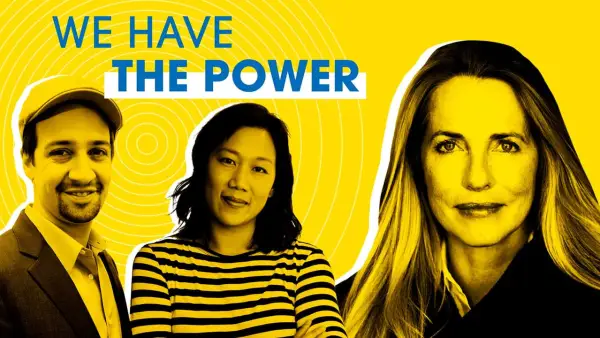
Let’s rethink giving
How can we reimagine philanthropy so that we create a future where there is justice and dignity for all? What are the root causes of the issues and how do we encourage the participation of many and not just a few?
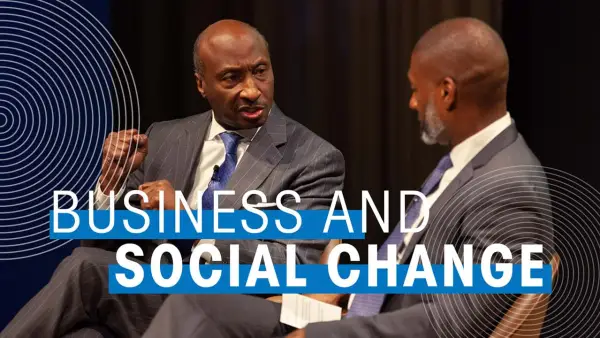
The business of justice featuring Kenneth Frazier and Charles Blow
Kenneth Frazier, CEO of Merck and Co, believes one of the greatest injustices in our society is the health disparities experienced by women of color. A zip code is more likely to determine health outcomes than genetic code. Frazier uses philanthropy to address mortality rate and wants to see more medical personnel listen to their women patients and patients of color.
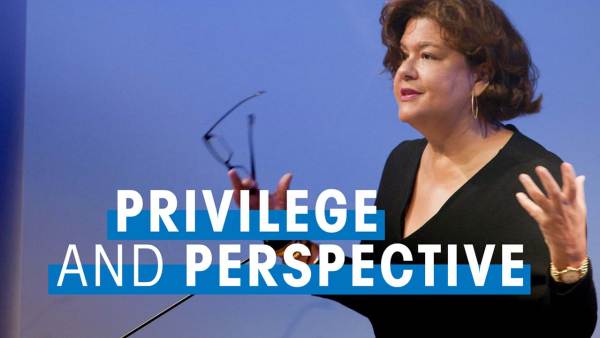
The privilege of perspective featuring Elizabeth Alexander
Elizabeth Alexander, president of the Andrew W. Mellon Foundation, on art, activism, and acknowledging adversity.
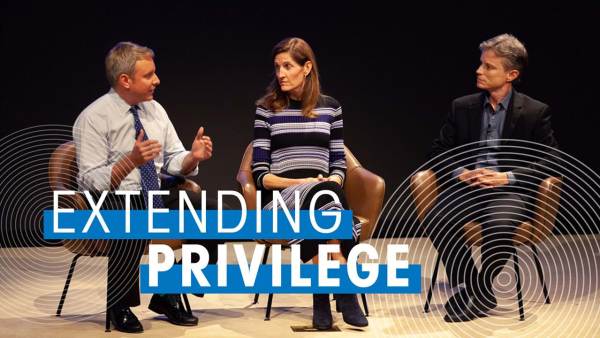
Extending privilege featuring Valerie Rockefeller and Henry Ford III
Henry Ford III, trustee of the Ford Foundation, and Valerie Rockefeller, chair of the Rockefeller Brothers Fund, discuss transforming philanthropy for the 21st century. The families have seen the value of impact investing and believe in partnerships to increase the difference that can be made.
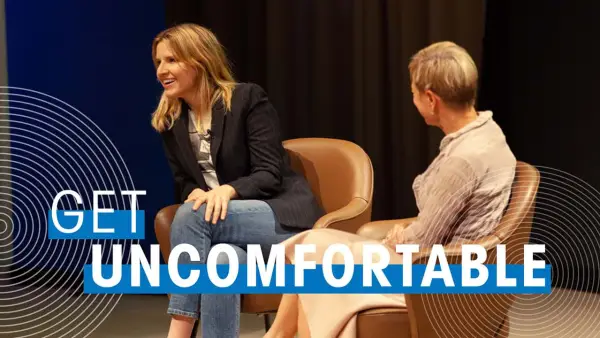
Getting proximate featuring Tara Westover and Hilary Pennington
Tara Westover, author of “Educated,” sees a disconnect between the rural and urban parts of the United States. She believes philanthropists need to be more proximate to the issues they care about, and that spending time with people who aren’t like you is key to disrupting inequality.
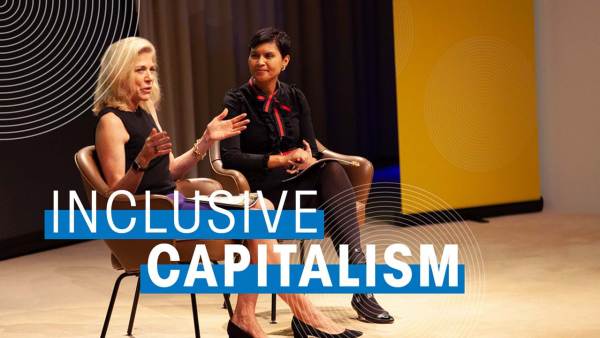
Can capitalism ever really be inclusive? featuring Lynn Forester de Rothschild and Stephanie Mehta
The top 1 percent of the United States controls 42 percent of the national wealth. Lynn Forester de Rothschild, founder of the Center for Inclusive Capitalism, explains that reimagining the economy and making it a sustainable, inclusive system that leads to strong economic growth requires reform.
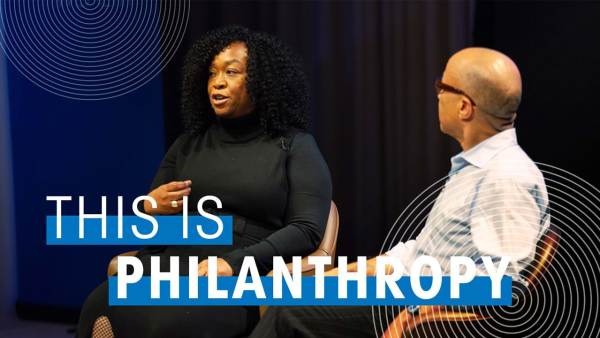
This is what a philanthropist looks like featuring Shonda Rhimes and Darren Walker
Writer and producer Shonda Rhimes has seen the power storytelling has to make change through her work, which centers marginalized people and issues. Rhimes believes philanthropy sets an example others can follow, and says supporting organizations that are already on the ground doing the work is key.
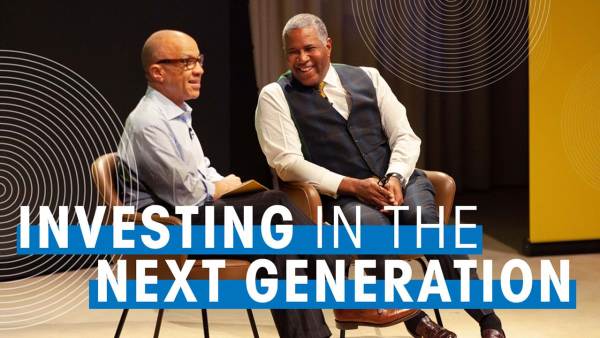
Catalyzing the potential of our time featuring Robert Smith and Darren Walker
Through philanthropy, Robert Smith, CEO of Vista Equity Partners, has alleviated the burden of student debt for a graduating class. He says private philanthropy can help address public policy challenges, such as student loan debt, and is a disruptive opportunity that liberates people to contribute to society in positive ways.
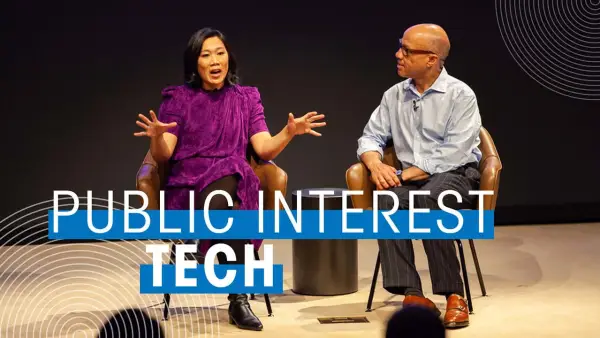
Tech funders changing philanthropy featuring Priscilla Chan & Darren Walker
The top 1 percent of the United States controls 42 percent of the national wealth. Lynn Forester de Rothschild, founder of the Center for Inclusive Capitalism, explains that reimagining the economy and making it a sustainable, inclusive system that leads to strong economic growth requires reform.
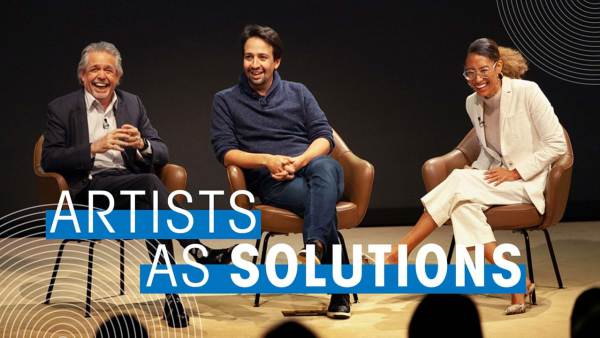
Why artists shouldn’t stay in their lane featuring Lin-Manuel Miranda, Luis Miranda Jr. and Elaine Welteroth
Composer and actor Lin-Manuel Miranda believes all art is political. He and his father, Luis A. Miranda Jr. of the MirRam Group, see the value philanthropy has to empower communities that may have been neglected, and allow them to share their stories through the arts, like Puerto Rico did after Hurricane Maria.
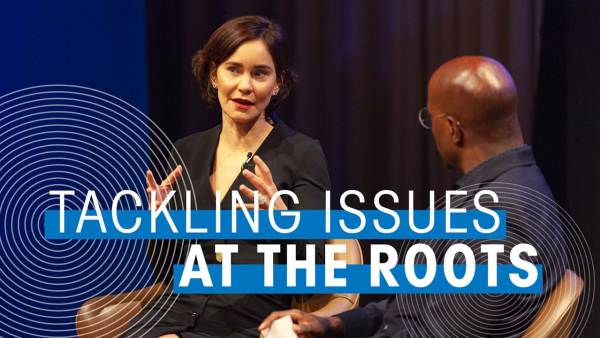
Good philanthropy needs government featuring Laura Arnold and Van Jones
Laura Arnold, co-chair of Arnold Ventures, believes policy change is the lever that will lead to sustainable change. She says we need to attack the systems that are creating the injustices we see, like criminal justice. Philanthropy can create better alternatives that governments can adopt.
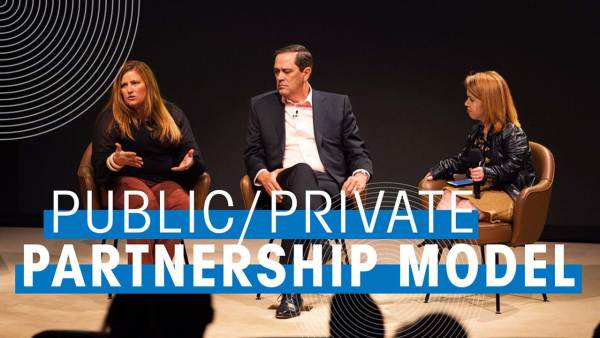
Public-private partnership: A new model for lasting impact featuring Jennifer Loving and Chuck Robbins
Jennifer Loving, CEO of Destination: Home, says a public-private partnership, like the one between her nonprofit and Cisco, headed by Chuck Robbins, can help create a model for the future of philanthropy, and tools like social bonds can help address some of the biggest crises of our time.
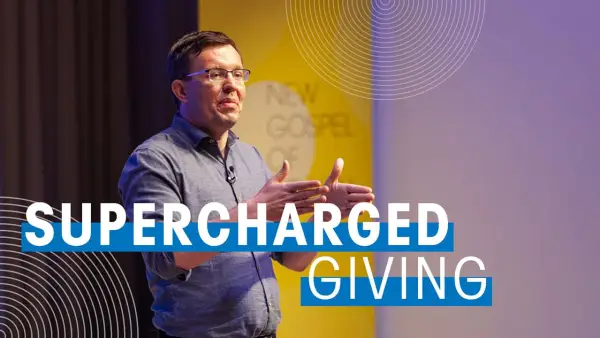
The new power of philanthropy featuring Henry Timms
CEO of Lincoln Center Henry Timms asks how philanthropy can supercharge civic engagement. Timms, who started Giving Tuesday, says trust-based philanthropy needs to shift from generosity to justice, driving more participation from more people, and encouraging meaningful ways to participate and collaborate.
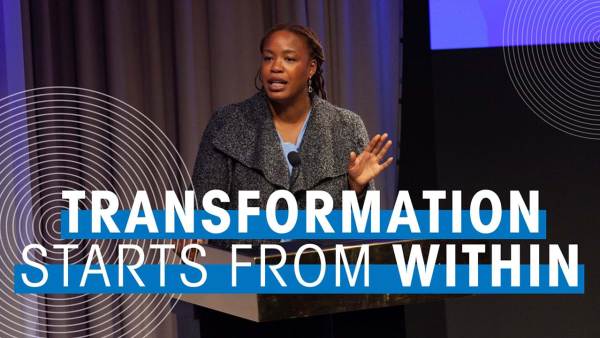
Transforming organizations from the inside featuring Heather McGhee
Heather McGhee, distinguished senior fellow at Demos, shares her experience of working to make the Demos think tank more diverse and led by people of color. Institutional racism, however slight, drives inequality, she says, so transformation needs to be a must-have and not a nice-to-have.
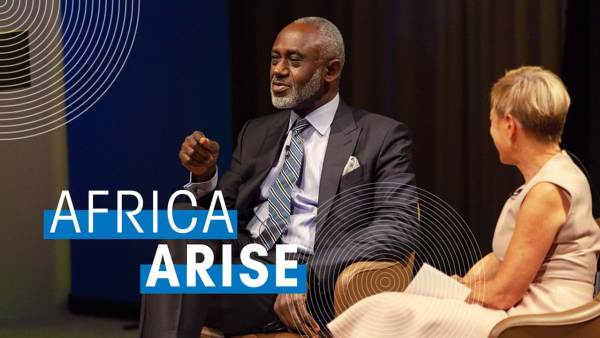
Africa, your time is now featuring Gbenga Oyebode and Hilary Pennington
Ford Foundation trustee Gbenga Oyebode has seen the value of impact investing on the African continent. He believes philanthropy should not just be giving, but investing with a social impact and an economic return. Giving is inherently part of African culture, but needs to be more strategic and collaborative.
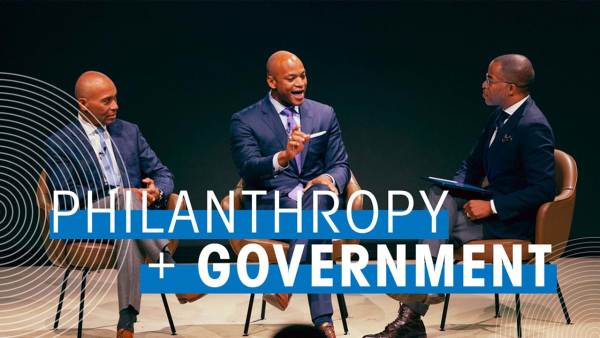
Why good government needs philanthropy featuring Deval Patrick and Wes Moore with Jonathan Capehart
Wes Moore, CEO of Robin Hood, and Deval Patrick, managing director of Bain Capital, see philanthropy working hand-in-hand with government in the fight for equality. Philanthropy can often provide the initial capital needed while government can take over and scale the solution.
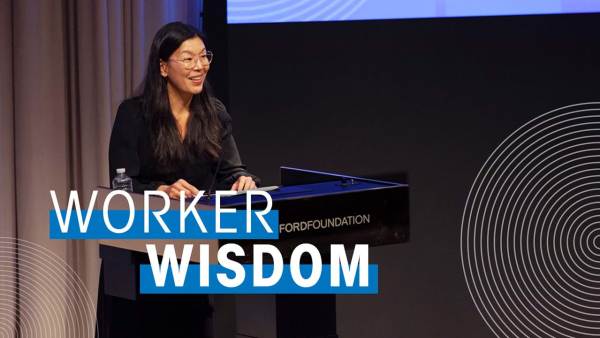
Bringing hidden labor to light featuring Ai-Jen Poo
Ai-jen Poo, executive director of the National Domestic Workers Alliance, says the sector of caregivers and domestic workers continues to grow. Building a future of work that works for all is centered on justice-based philanthropy and not a generosity model.
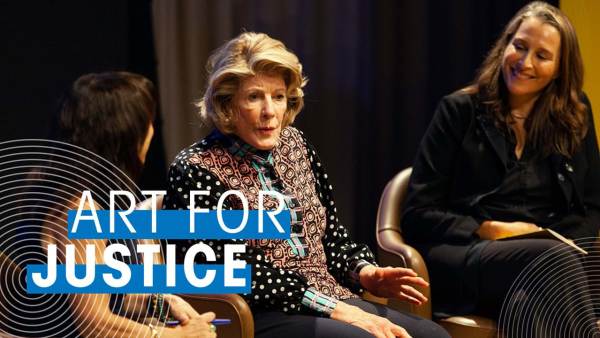
Art for Justice featuring Agnes Gund and Catherine Gund with Maria Hinojosa
The Art for Justice fund was created to help end mass incarceration. Founder Agnes Gund says philanthropy is about addressing issues like this. Catherine Gund believes art has an important part to play in the fight for racial justice and can help change the policies that led to mass incarceration.
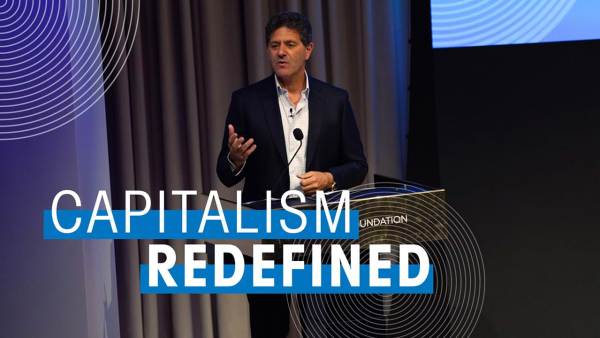
Capitalism redefined featuring Nick Hanauer
Entrepreneur Nick Hanauer asks us to reimagine the economy. He believes we need to change our beliefs about the economy to create a more just, more equitable society for all. By choosing better economic beliefs, we can change society for good.
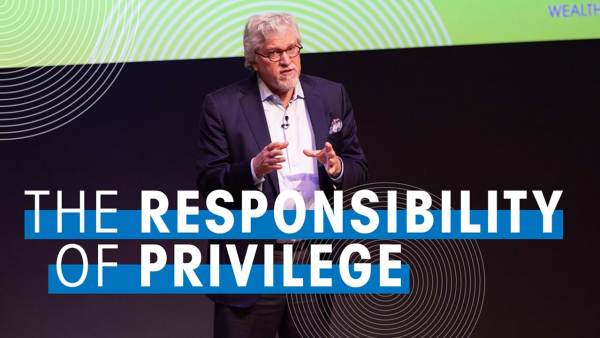
On using power and privilege for change featuring Jeff Raikes
Jeff Raikes, co-founder of the Raikes Foundation, says dismantling racism requires philanthropy to ditch its colorblind approach. People in power need to acknowledge that privilege is invisible to those who possess it. Privilege and power need to be transformed into a force for changing our society for the better.